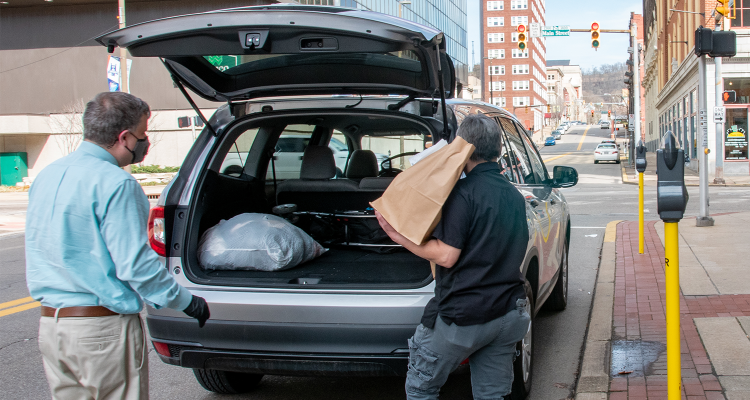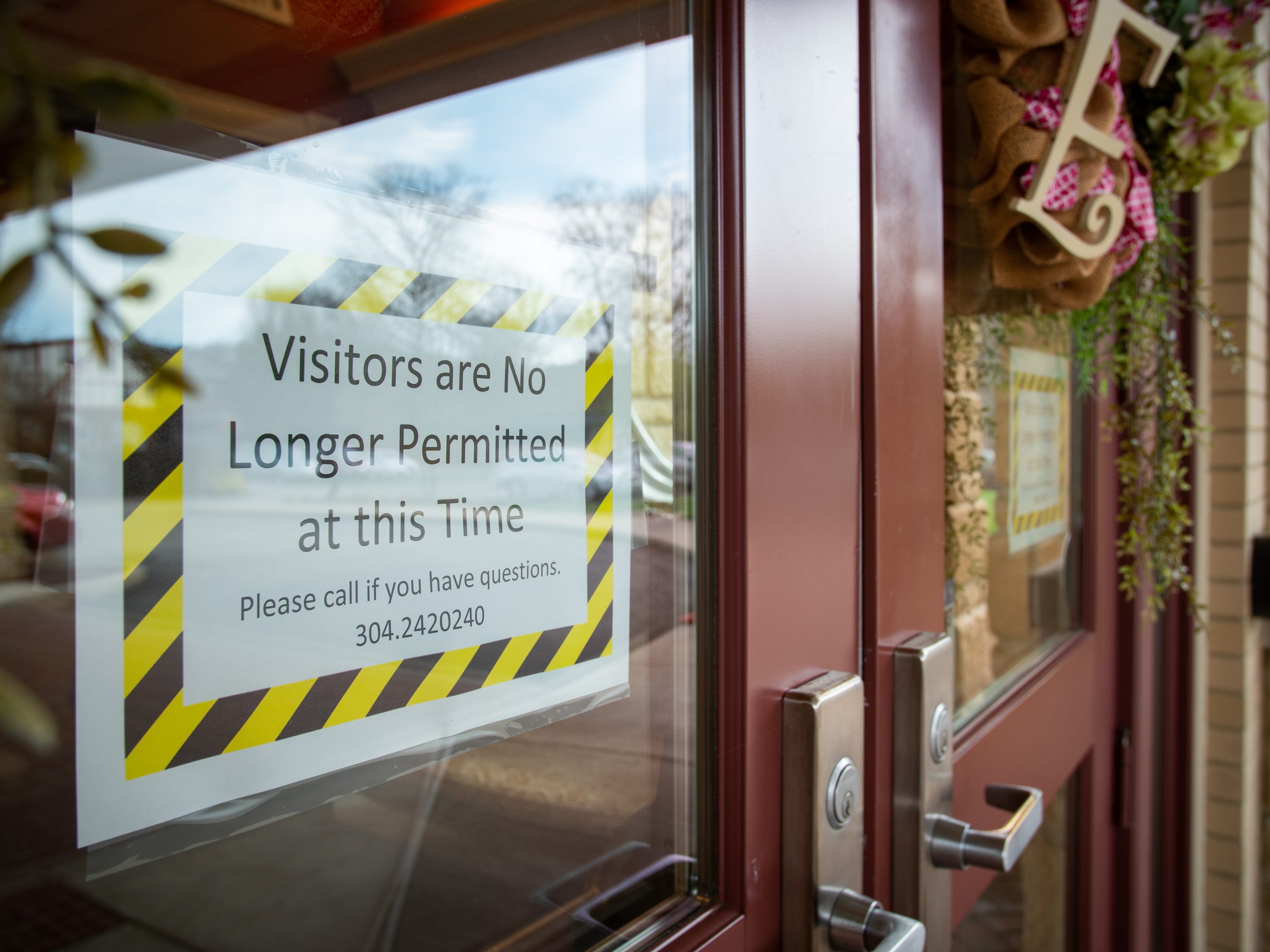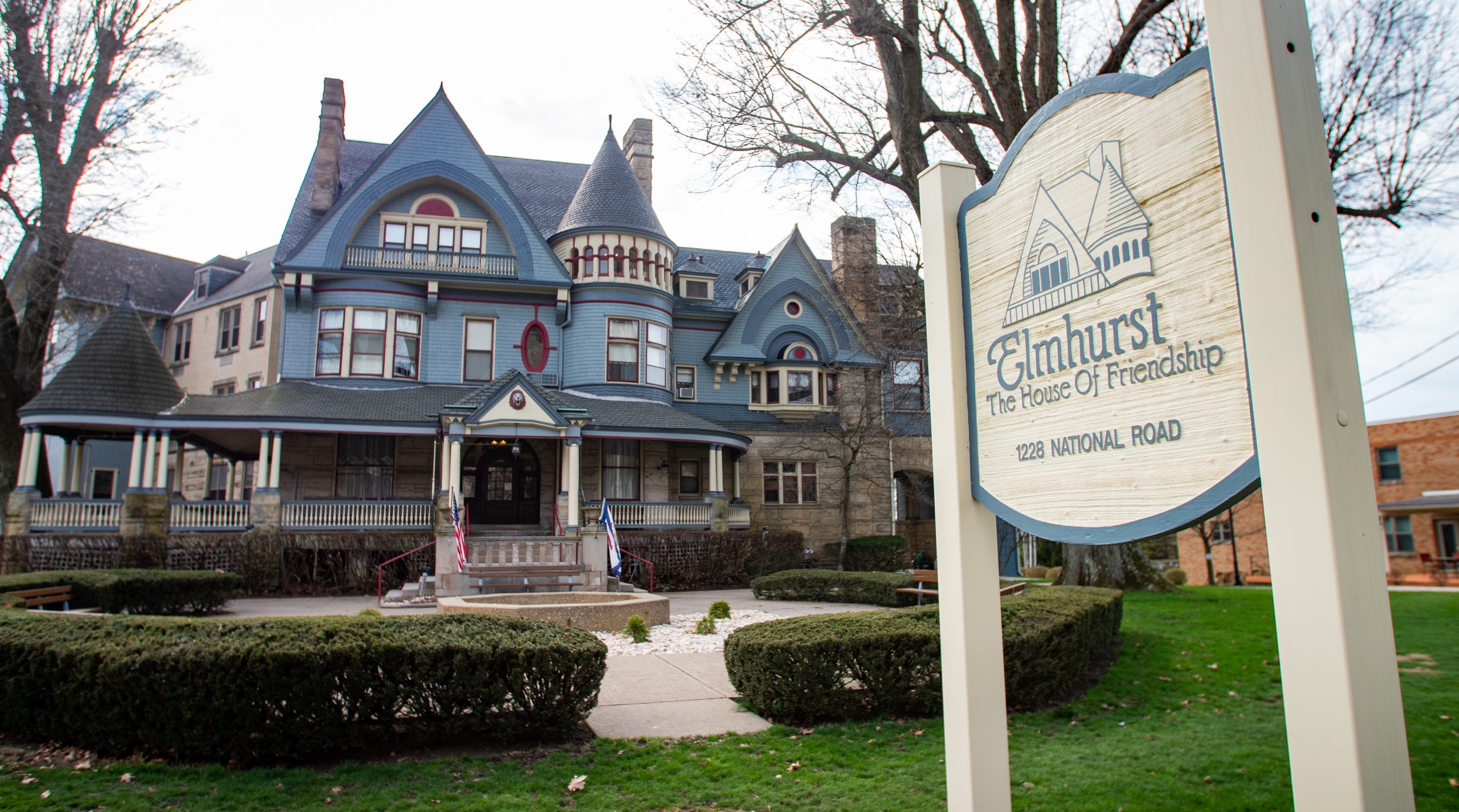At Weelunk, we’re all about keeping you connected to your community. Because that looks a little different right now, we’re bringing you ways to engage while staying safe and healthy. We hope Weelunk can continue to connect you to Wheeling — no matter where you are.
America’s seniors have endured much during their lives. They’ve fought wars, raised families, mourned assassinations and built America’s cities. However, today they’re at severe risk.
According to the Center for Disease Control and Prevention and CoronaVirus.gov, “older adults and people who have serious underlying medical conditions such as heart disease, diabetes and lung disease” are at the highest risk of getting severely ill from the coronavirus. This has left some seniors uncertain about what their daily lives will look like in the coming weeks and possibly months ahead. It is for this reason that protecting seniors and helping them maintain some degree of normalcy is more essential than ever.
BUSINESSES RISE UP
To ensure the safety of seniors and those at the greatest risk, many stores now offer curbside service and special shopping hours. The Public Market and Jebbia’s Market in Wheeling provide call-ahead curbside pickup for grocery orders during the pandemic. Orders for the Public Market should be called in at least 30 minutes in advance with payment information. Upon arrival at the store, customers can call, and a store employee will bring the order to your car.
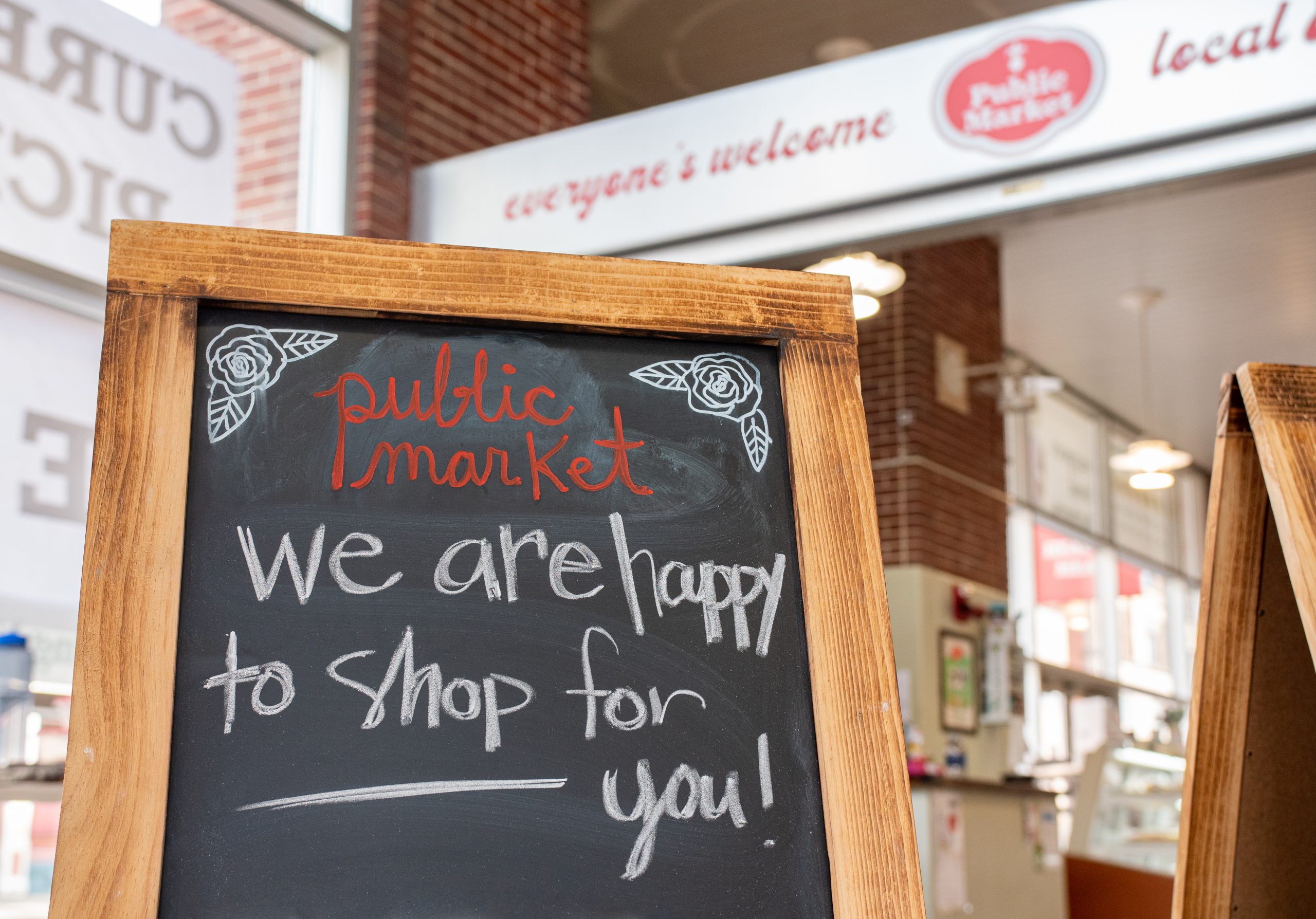
Jebbia’s Market orders can be called in between 10 a.m. to 4 p.m., with payment information by phone or in-person, and the store will call when the order is ready to be picked up. This is a great way for seniors to support local businesses and avoid going into stores entirely.
Target, Walmart, Dollar General and some other stores offer special shopping times for seniors and high-risk citizens. Walgreens has a time dedicated to seniors only, and their pharmacists are calling seniors to check on how they’re doing. Times of operation have been changing at some stores, and it is recommended to check with local stores to see if they’re offering special hours, the current times and who is permitted in at that time.
However, officials are strongly urging seniors and those with underlying health conditions to stay at home, so if you can, reach out to a senior who may need some assistance.
“I’m trying to stay away from people as much as I can. My granddaughter does most of my shopping,” said Wheeling resident Jim Hall.
VOLUNTEERS
Volunteers across the country are chipping in to help during this difficult time.
Moundsville resident Jay Stout recently created an organization called Forever Honored Veterans. While he originally planned to focus on assisting elderly veterans, the organization is now helping all senior citizens, regardless veteran status. Forever Honored Veterans’ reach spans the Ohio Valley, so if you or someone you know need assistance, or if you’d like to volunteer, reach out to Stout at 304-780-0081.
“Our main focus is going to be grocery delivery, but with the coronavirus, it kind of created a sense of urgency, so we are helping with all kinds of things,” Stout explained. He’s responded to calls for various needs. One senior needed a recliner moved; another had a broken sink.
“They are our mothers and fathers. We need to take better care of them,” he said.
“As long as I can keep them in their homes and not have to come out and get sick, I feel like our organization is helping.”
Glen Dale native Brad Paisley mobilized volunteers to deliver a week’s worth of groceries to senior citizens in the Edgehill and Berry Hill neighborhoods near Nashville, Tennessee, from the free grocery store he owns. “We have a list of seniors that we’re basically dropping off what they need, following all protocols to make sure we’re doing this right,” Paisley said in an announcement on his Instagram page. “They don’t need to be out. Let’s get through this.”
NO DOO WOP
Concerts and events across the Ohio Valley have been postponed or canceled, affecting the recreational activities enjoyed by many seniors. The Capitol Theatre and WesBanco Arena in Wheeling have been forced to postpone or cancel many upcoming performances. Rock, Roll & Doo Wop XIX, a regular show enjoyed by seniors at The Capitol Theatre has been postponed until Aug. 7.
Denny Magruder, executive director of The Capitol Theatre and WesBanco Arena, said, “The health and safety of our patrons, employees and artists has always been and will always be our No. 1 concern. Our thoughts and prayers are with our Doo Wop patrons and their families at this time.”
In the weeks ahead, he suggests that patrons confirm that scheduled events are being held by checking venue websites, social media or contacting them by phone.
SENIOR CENTERS
Nursing homes, retirement homes and long-term care facilities that provide critical assistance for senior citizens have placed restrictions on visitors for the safety of their residents.
“The President’s Coronavirus Guidelines for America” recommends not visiting retirement homes and long-term care facilities. Additionally, the State of West Virginia DHHR has mandated recommendations for long-term care facilities: first, as with the federal recommendations, restrictions should be placed on all visitations to long-term facilities except for serious medical situations; second, implement changes to visitor policies to further limit at-risk residents and health care personnel; finally, alter schedules to reduce meal mixing (e.g. stagger meals, arrivals/departure, etc.). These recommendations are valuable to protect some of the most vulnerable at-risk citizens.
AN EARLIER PANDEMIC
The 1918-19 Spanish flu spread worldwide infecting approximately one-third of the world’s population and killing approximately 50 million people worldwide, according to the CDC’s website.
Today’s senior population is at least one generation removed from that pandemic. However, many have heard the stories of how that virus impacted their parents and grandparents. The stories of that horrible pandemic still remain with our seniors.
Janet Cochran-Vitiello of Shadyside related the story of her mother Alice Cross Cochran-Burkhart’s birth during the pandemic on Nov. 18, 1918, in Pine Grove, West Virginia, a rural community 17 miles from New Martinsville.
“Martha Cross, my grandmother, often told the story that, when my mother was born, the doctor could not make it to their rural home because he was overwhelmed taking care of flu patients. So my grandfather, Lindsay Cross, delivered my mother and she lived 89 years,” Vitiello said. “My mother used to say, ‘Dad had experience delivering animals on the farm, so he knew what to do.’”
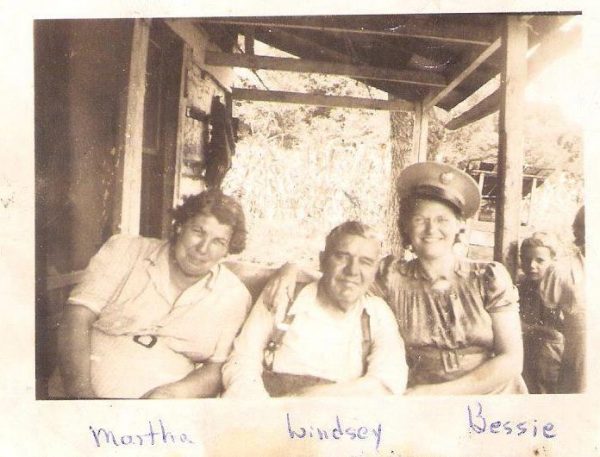
While COVID-19 is a different type of virus than the 1918 virus, our seniors are still faced with the reality of a challenging virus that is conjuring anxieties of those stories, memories and hardships of the past.
Sometimes, the best thing we can do is provide an ear to listen. If you know a senior citizen who may be struggling, give them a call. A friendly voice and someone to chat with — about the current situation or the weather — might make a big difference.
TIPS FROM THE CDC
The CDC notes that senior citizens being at increased risk from COVID-19 may result in increased stress. This fear and anxiety in older people can be overwhelming and cause strong emotions. Below are a few recommendations by the CDC for seniors to help support themselves:
• Take a break from watching, reading or listening to news stories and social media. Hearing about the pandemic repeatedly can be upsetting.
• Take care of your body. Take deep breaths, stretch or meditate. Try to eat healthy, well-balanced meals, exercise regularly, get plenty of sleep, and avoid alcohol and drugs.
• Make take time to unwind. Try to do some other activities you enjoy.
• Connect with others. Talk with people you trust about your concerns and how you are feeling.
• Call your health care provider if stress gets in the way of your daily activities for several days in a row.
HOW YOU CAN HELP
What else can be done to help elderly family members and neighbors?
• Deliver groceries for seniors or those who are not able to leave their homes. During this “Stay at Home Order” in West Virginia, you are able to help someone get necessary supplies and care for or support a family member or friend. However, you should not visit friends and family if there is no urgent need. Some charitable organizations may be able to help with groceries and essential supplies, and they may need help delivering them. Be sure to practice safe social distancing when delivering and use protective equipment if necessary.
• Call family members, neighbors, friends and others who are not able to get out to check on their physical and mental health daily or regularly.
• Utilize FaceTime, Facebook video chat, Skype or other similar apps to connect virtually with vulnerable citizens online.
• Make sure those who are not able to get out are aware of the resources available from local libraries online. Most libraries have great online resources available for free including e-books, audiobooks, educational videos, newspapers, magazines, etc. These resources are available at most libraries with only a library card number. Many local libraries, including the Ohio County Public Library, are also offering access to temporary library cards online for those who do not already have a card.
• Send greeting cards to senior center residents. This could help to alleviate the loneliness caused by no-visitor policies.
Fred Rogers famously said, “When I was a boy and I would see scary things in the news, my mother would say to me, ‘Look for the helpers. You will always find people who are helping.”
In the weeks and possibly months ahead, many will be helpers. Some will be obvious. However, many will go unnoticed. Moving forward, many helpers will rise to help our senior citizens in many ways, and families and communities will become stronger because of these helpers.
With a little hope, communities will rise united and we will come out of this a little simpler, a little more respectful and a better place.
• Kyle Knox, born and raised in Marshall County, West Virginia, is a long-time events industry professional with years of experience working at various venues and events throughout the tri-state area, including The Capitol Theatre, WesBanco Arena, Jamboree In The Hills, Heritage Music BluesFest and the Wheeling Symphony. Before returning to the Wheeling area, Kyle also worked in the events industry in Pittsburgh. Kyle is passionate about music, Appalachian history and culture, nature and local sustainable foods. He is a 2013 graduate of West Liberty University and became a contributing writer for Weelunk in 2020.


